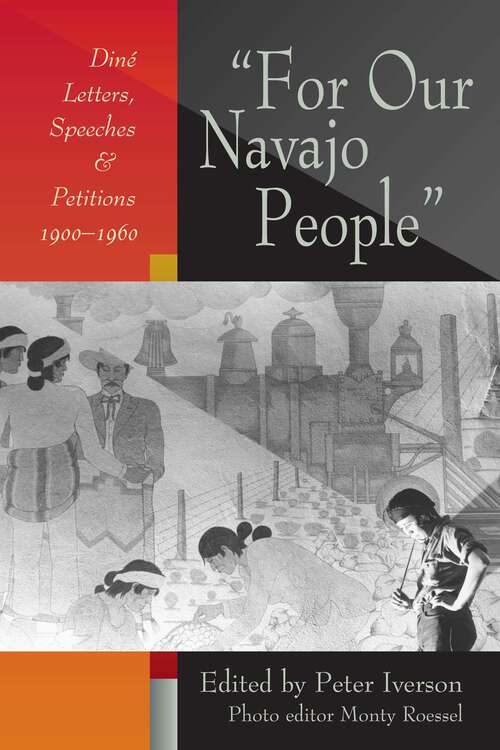
For Our Navajo People: Dine Letters, Speeches, and Petitions, 1900-1960
Indigenous peoples history
Synthetic audio, Automated braille
Summary
One hundred documents written by Diné men, women, and children speaking for themselves and on behalf of their communities are collected in this book. Discovered during Iverson's research for Diné: A History of the Navajos, these letters, speeches, and petitions,… almost all previously unpublished, provide a uniquely moving portrait of the Diné during an era in which they were fighting to defend their lands and to build the Navajo Nation.Six crucial, overlapping subjects are addressed here: land, community, education, rights, government, and identity. Brief introductions to each chapter and each document provide the necessary context, and historic photographs selected by Monty Roessel (Navajo), an outstanding photographer, supplement the words of the people. Most of the vast literature about American Indians emphasizes the actions and words of non-Indians. Indians become the victims, the people to whom things happen. This volume furnishes a different view of the native past. It shows Navajos making their own history. It demonstrates how the Diné worked to keep their lands, develop their economy, build their communities, educate their young people, affirm their rights, govern themselves, and maintain their heritage while forging a brighter future. Included are the words of such prominent leaders as Chee Dodge, Jacob Morgan, Tom Dodge, Annie Wauneka, Sam Ahkeah, and Paul Jones, and less widely known but significant spokespersons like Howard Gorman, Scott Preston, Roger Davis, and Lilly Neill. It also presents the words of students at boarding schools, soldiers fighting in World War II, and members of the Native American Church speaking out for religious freedom. This book celebrates the resilience of the Diné and salutes their resolve. It honors the men, women, and children who built the Navajo Nation.Monty Roessel (Navajo), Executive Director of the Rough Rock Community School, has written and provided photographs for award-winning books for young people.